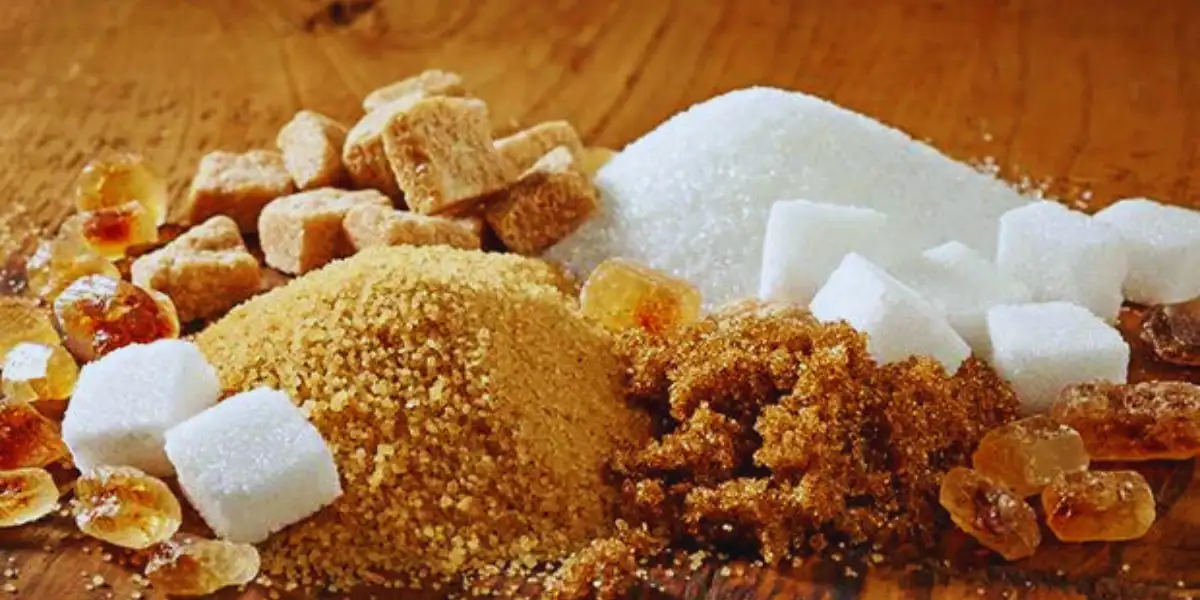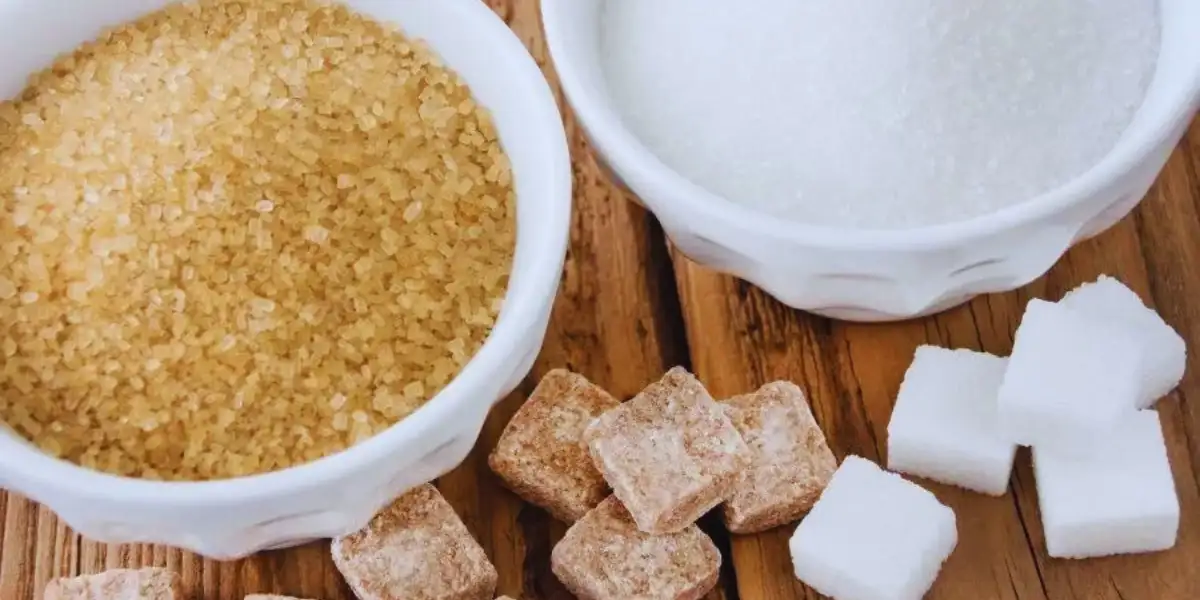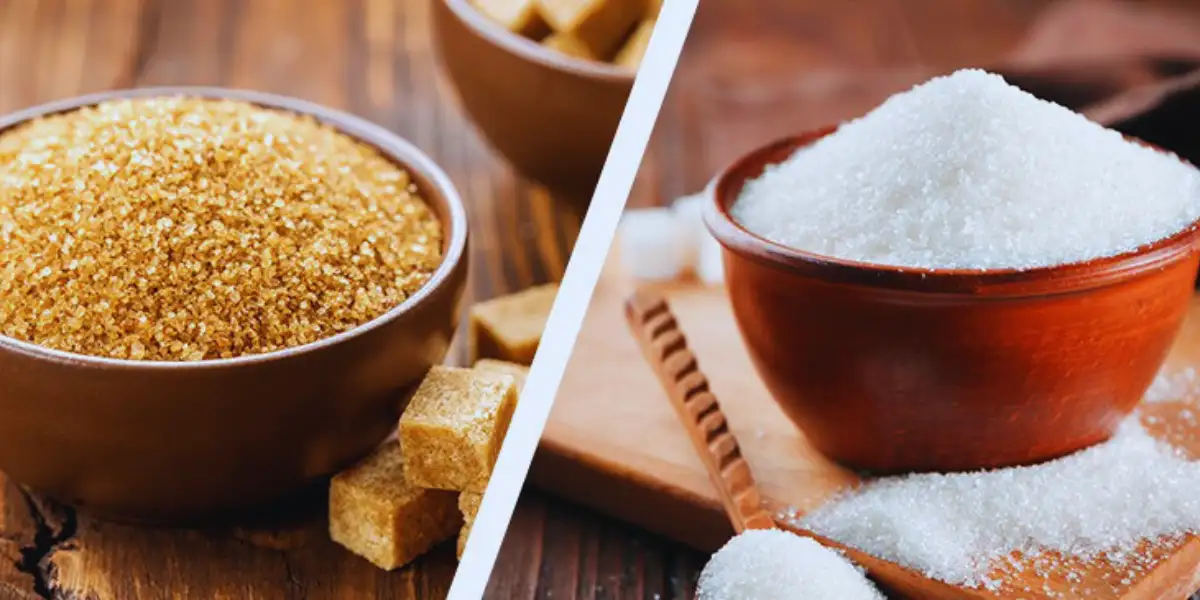The fitness industry runs on facts and fads. Ugar is a hindrance when on a weight loss journey. However, saying no to those delectable sweet dishes or missing the morning dose of happiness in the form of sweetened coffee or tea is difficult. The fact continues to remain the same.
You cannot deny sweet cravings; obviously, limiting them or staying in portion is a more viable thing. Also, for kids, finding a sugar substitute for those celebrations is vital. Thus, all in all, the health experts came out and proposed several white sugar substitutes. However, what works for one may not suit the other. Therefore, understanding all about the substitutes and then making them a part of the diet is required.
Is Brown Sugar Better Than White Sugar? Why?

Brown sugar is a type of white sugar with added molasses, giving it a brown color and slightly different flavor. It is highly refined and processed, while white sugar is a neutral sugar without molasses. Brown sugar has a subtle caramel flavor and moisture, while white sugar has a drier texture. It contains small amounts of minerals but is not a significant source of nutrition.
Its color can affect the appearance of baked goods. Brown sugar is often preferred in recipes with a caramel flavor or moist texture, while white sugar is versatile and used in a wide range of recipes. The choice between brown and white sugar depends on the recipe and personal preference.
Brown sugar versus white sugar: Which should you choose?

Sugar is a natural ingredient that has been in use for ages. There are several types of sugar but then white and brown sugar are the most popular ones. Brown sugar is one of the most trusted and used sugar substitutes.
The reason for its popularity is that it is not refined like white sugar and can easily replace white sugar in all dishes and beverages. Brown sugar is a mixture of sugar and molasses, thus giving it a darker hue. It is different from white sugar in nutrient content, and there is slight variation in flavor, baking use, and manner of production.
Nutritional difference between white and brown sugar
White and brown sugar both originate from the same crop, that of its sugarcane or sugar beet plant (both are the same). Most brown sugar is a mixture of white sugar with molasses, which is a syrup derived from sugar. Molasses gives a dark tone to brown sugar and also increases its nutritional quality.
Nutritionally, brown sugar is slightly higher in calcium, iron, and potassium content. The nutrition is present in very small doses so brown sugar is not a good source of any vitamin or mineral. Brown sugar has fewer calories as compared to white sugar. Again the difference is very nominal.
One teaspoon of white sugar has 16.3 calories whereas the same quantity of brown sugar has 15 calories. Thus, apart from the very minute differences, both are the same. The difference lies in their colors and additional change in flavor due to the presence of molasses.
Origin Of Brown Sugar And White Sugar
Sugar can be produced in tropical climates where sugarcane or sugar beet plants are cultivated. The two plants undergo a similar process to give sugar. There is a difference in the method of production of white sugar and brown sugar. Sugar juice is derived from both crops.
The juice is purified and heated to form a brown concentrated syrup called molasses. Centrifuged sugar crystals are produced. Sugar crystals are separated from molasses using a centrifuge, a device that spins extremely fast. White sugar then undergoes a further process where molasses is removed to get smaller crystals. Then, it is run through a filtration system, which is made of bone char or crushed animal bones to get the sparkling white sugar.
Refined brown sugar is molasses again added to white sugar. Whole brown sugar is unrefined and encounters lesser processing as compared to white sugar. Thus, it contains a certain molasses content and has a natural brown color.
Culinary uses of brown sugar and white sugar

White sugar and brown sugar are used in various dishes while baking or cooking. They are most often used interchangeably, and this could change the color of the final output; plus, there is a slight difference in the nutritional output and texture of the final output.
The molasses in brown sugar retain moisture, so when used in baking, the end product is softer in texture yet, they are denser. Cookies made with brown sugar are denser and moist, whereas the cookies with white sugar will rise more and will have an airier texture as white sugar allows more incorporation of air in the dough.
Thus, white sugar is more suitable for baked goods that require adequate rising, like souffles, mousses, and fluffy baked cakes. Brown sugar is more apt for zucchini bread and rich cookies. For barbecue sauce that needs a rich glaze, brown sugar is a better option. Even for caramelized dishes, brown sugar is better.
flavor profile and coloring Of white and brown sugar
Brown sugar and white sugar taste different and the color is also different. Using white sugar will give a light caramel color, whereas brown sugar will give a brown hue. Thus the sugar that one chooses will decide the result.
Brown sugar offers a deep, caramel, or toffee-like flavor as it contains molasses. The Plum cake comes out well with brown sugar. White sugar is neutral in flavor. This will give the desired results, and therefore, for chiffon cakes, it is a wise choice.
What should you choose: brown sugar or white sugar?
They can replace each other but then the desired taste, color, and texture will decide the option. Brown sugar contains more minerals and vitamins but fewer calories but the difference is minute. Thus, selection will depend on the desired result.
Coming to the cost aspect; brown sugar is slightly more expensive than white sugar. Both will have the same effect on health; thus, moderation is the key. Therefore, making a choice will depend on all the factors. It is recommended that not more than five to ten percent of daily required calories is derived from added sugar.
Brown Sugar Health Benefits
- Rich in Nutrients and Minerals: Brown sugar is rich in calcium, iron, potassium, and antioxidants, which protect cells, strengthen teeth and bones, regulate blood pressure, and increase red cell production.
- Energy Booster: Brown sugar is a simple carbohydrate that easily breaks down, providing energy.
- Skin Health Improvement: Brown sugar serves as a natural exfoliant scrub, removing dead skin cells and reducing fine lines and wrinkles.
- Enhances Flavor: Brown sugar’s caramel-like flavor enhances the taste of various dishes, desserts, and beverages.
- Good for Digestive System: Brown sugar’s molasses promotes a healthy digestive system and bowel movements. Its fiber helps regulate blood sugar levels.
- Lowers Risk of Obesity and Diabetes: Brown sugar’s lower glycemic index and fiber prevent blood sugar spikes, lowering the risk of obesity and diabetes.
- Stress Reduction: Brown sugar’s molasses release anxiety, reducing stress levels.
- Improves Immune System: Brown sugar’s anti-inflammatory properties boost the immune system and overall health.
Brown Sugar Types
- Light brown sugar: Ideal for baked goods and sauces.
- Dark brown sugar: Deeper color and molasses flavor, suitable for gingerbread, baked beans, and barbecued foods.
- Muscovado sugar: Unrefined cane sugar with coarser, stickier crystals, suitable for strong molasses flavors.
- Turbinado sugar: Blond color, mild flavor, larger crystals, suited for streusel toppings.
Summation
White sugar is bad as it is refined. Brown sugar is a slightly better version as it has more nutrients and fewer calories. However, it does not imply that one can have unlimited brown sugar. Portion control and quantity control are vital. Else they could cause the same problems.
Excessive sugar consumption is not good for the skin, kidneys, brain, and overall health. Thus consume the sugar goodies once in a while and limited quantities. Brown sugar in place of white sugar is a healthy choice but only when it’s consumed in limited quantities.
References
- National Institutes of Health (.gov) (2023 December) Association between brown sugar intake and decreased risk of cancer in the Amami islands region, Japan Available [online] at: https://pubmed.ncbi.nlm.nih.gov/38135478/
- National Institutes of Health (.gov) (2020 September)Antioxidant activity, nutritional and physicochemical characteristics, and toxicity of minimally refined brown sugar and other sugars Available [online] at: https://www.ncbi.nlm.nih.gov/pmc/articles/PMC7500760/